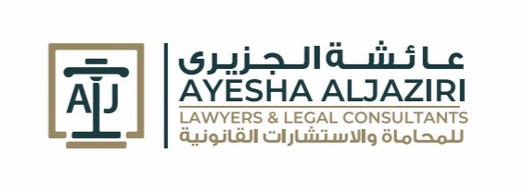As remote work accelerates worldwide, many professionals are exploring the United Arab Emirates (UAE) as a base of operations. This article breaks down the UAE’s new Remote Work Visa requirements in clear, practical terms so you can understand who qualifies, what documents you need, and how the application process works. Where legal nuances matter, our team at Ayesha Aljaziri Lawyers & Legal Consultants—Dubai’s premier full-service law firm—provides trusted legal solutions. With full rights of audience before all UAE courts (civil, Sharia, commercial, and appellate) and a multilingual team (Arabic, English, and other languages), we help individuals and businesses navigate immigration, employment, and regulatory issues with confidence.
-
- The UAE’s Remote Work Visa is designed for foreign employees, freelancers, and business owners who work for entities outside the UAE and wish to reside locally.
- Applicants typically need a minimum verifiable income, valid health insurance, a passport with sufficient validity, and proof of employment or business ownership.
What the UAE Remote Work Visa Is—and Isn’t
The Remote Work Visa allows eligible professionals to live in the UAE while continuing to work for an employer or clients located outside the country. It is not a pathway to local employment with a UAE-based company, nor is it the same as the long-term residence options such as the Golden Visa. If your objective is to work for a UAE employer or to set up a local entity, different residency routes may be more appropriate. Our corporate lawyers in Dubai can advise on company formation, licensing, and compliance if that better aligns with your goals.
Eligibility Criteria
While specific program terms are periodically updated by authorities, the following general criteria commonly apply:
Types of Eligible Applicants
Employees of foreign companies. If you are employed by a non-UAE employer, you will generally need an employment contract confirming your role, salary, and remote-work arrangement. A letter from your employer and recent payslips are typical supporting items.
Freelancers and independent contractors. You should be able to demonstrate ongoing professional activity through current contracts, client letters, or invoices that show scope of services and payment history.
Business owners. Founders or owners of non-UAE companies can qualify by presenting corporate registration documents, proof of active operations, and evidence of personal income derived from the business.
Minimum Income Requirements
Applicants are usually expected to demonstrate a minimum monthly income threshold (commonly stated around the mid four-figures in USD equivalent). Evidence may include employment contracts, employer letters, bank statements showing recent salary deposits (often three months or more), and signed invoices or dividend statements for business owners. Because financial thresholds and acceptable formats can change, ensure your documentation is current, legible, and consistent (PDF statements work well). When in doubt, our financial services and banking law team can help verify what proof best aligns with regulatory expectations.
Health Insurance and Passport Validity
Valid health insurance that covers you in the UAE is generally required. Policies should meet minimum local standards and, in some emirates, may need to be issued by approved providers. Your passport should have at least six months’ remaining validity at the time of application, and you should have recent, compliant passport photos ready.
Additional Checks
Depending on your nationality and personal circumstances, authorities may request a background check or additional attestations. Requirements can vary by emirate and over time. If you have questions about documentation attestation or notarisation, our multilingual employment and labour lawyers in Dubai can guide you through compliant preparation.
Application Process
The application process is typically completed online and followed by standard residency formalities in the UAE. A common sequence is:
Step-by-Step Guide
- Online application. Complete the relevant form accurately, ensuring your personal data matches your passport and supporting documents exactly.
- Document upload. Provide proof of income, employment or business ownership, valid health insurance, passport scans, and compliant photos. Use clear, high-resolution PDFs or images.
- Fee payment. Pay the applicable application and processing fees. Keep receipts for your records. Fee levels and payment channels can change, so check current guidance before you proceed.
- Medical screening & biometrics. As with most UAE residence permits, you may be required to complete a medical examination and enroll biometrics for your Emirates ID.
- Processing & issuance. If approved, you will receive confirmation and instructions to finalize your entry permit or status change and obtain your Emirates ID card.
Tip: Keep your email and phone reachable. If authorities request clarifications or additional documents, respond promptly and precisely to avoid delays.
Required Documentation

- Valid passport (with sufficient remaining validity)
- Proof of employment or business ownership (contracts, registration, client agreements)
- Proof of income (payslips, bank statements, invoices/dividends)
- Health insurance valid in the UAE
- Passport-sized photographs meeting UAE specifications
- Any background checks or attestations if requested
Ensure that names, dates, and figures are consistent across all documents. Discrepancies—even minor ones—are a common cause of processing delays.
Visa Duration and Renewal
The Remote Work Visa is commonly issued for a one-year period, with the possibility of renewal if you continue to meet eligibility criteria. Start preparing your renewal at least 30–60 days before expiry to allow time for updated documents (new payslips/bank statements, renewed insurance, and any updated employer letters). Keep a tidy archive of contracts and statements throughout the year to streamline renewal. If your situation changes—new employer, adjusted income, or business restructuring—seek guidance early. Our UAE court representation page outlines how our full-service team supports clients with complex immigration and regulatory matters should disputes or appeals arise.
Benefits of the Remote Work Visa
Beyond the obvious lifestyle appeal—modern infrastructure, extensive transport links, and world-class amenities—the UAE offers a supportive environment for international professionals. Many applicants value the clarity of rules, ease of travel connections, and the ability to network with a globally diverse business community. As a leading law firm in Dubai, we regularly advise clients on ancillary needs such as tenancy contracts, telecommunication services, and regulatory registrations that can accompany a move.
Quality of Life in the UAE
Dubai and Abu Dhabi feature reliable high-speed internet, extensive coworking spaces, and thriving startup ecosystems. Healthcare standards are high, and English is widely used in business contexts—helpful for first-time arrivals. Our multilingual lawyers can bridge language gaps in official processes and documentation, ensuring your transition is efficient and compliant.
Networking Opportunities
From sector-focused meetups to regional conferences, the UAE calendar is rich with professional events. Collaborative environments—accelerators, incubators, and coworking venues—make it easy to meet peers, founders, and investors. As your legal partner, we ensure your contracts, NDAs, and IP terms are watertight so networking turns into safe, scalable business.
Challenges and Considerations
Every relocation involves trade-offs. Understanding costs, legal obligations, and compliance will help you plan with confidence.
Cost of Living
Housing will likely be your largest expense. Prices vary by location, property type, and lease terms (e.g., annual payments vs. multiple cheques). Transport choices range from affordable public transit to ride-hailing and car leases. Budget realistically for utilities, mobile plans, and healthcare top-ups. If you intend to invest or rent long term, our real estate lawyers in Dubai can review tenancy contracts, building rules, and deposits to protect your interests.
Legal and Tax Implications
The UAE does not levy personal income tax on salary, but your home-country obligations may still apply, including reporting or taxation on worldwide income. Confirm your status with a qualified advisor. Ensure your work stays aligned with your visa category: the Remote Work Visa generally does not permit you to take up employment with a UAE entity. If you plan to contract locally, you may need a freelancer permit or company license; our commercial lawyers in Dubai can explain the options and compliance steps.
Frequently Asked Questions
Who can apply for the UAE’s Remote Work Visa?
Typically: employees of foreign companies, freelancers, and non-UAE business owners who perform services for clients outside the UAE. You’ll need to meet the income threshold, hold valid health insurance, and present clear evidence of your ongoing professional activity.
What documents are required?
Expect to provide a valid passport, proof of employment or freelance/business activity, recent bank statements or payslips indicating sufficient income, compliant photos, and health insurance coverage for the UAE. Depending on your profile, authorities may request additional items such as background checks or attestations.
How long is the visa valid?
It is typically valid for one year and renewable if you continue to satisfy the eligibility criteria. Maintain updated documentation, renew your insurance in time, and track expiry dates diligently.
Can I bring my family?
Yes, many successful applicants are able to sponsor immediate family members (spouse and children) if they meet financial and housing requirements. The exact criteria can vary; plan ahead so your family’s insurance, schooling, and tenancy documents are ready to support dependent applications.
Can I work for a UAE company on this visa?
No—this visa is geared towards remote work for non-UAE employers or clients. If you intend to work for a UAE entity or generate income locally, consider the appropriate licenses or a different residency pathway. We can advise on compliant structures through our corporate law and labour and employment law teams.
How Our Law Firm Supports Remote Professionals
At Ayesha Aljaziri Lawyers & Legal Consultants, we deliver comprehensive legal services tailored to remote workers and internationally mobile professionals. From contract reviews and tenancy guidance to licensing, regulatory compliance, and dispute resolution, our clients benefit from fast turnaround times, bespoke advisory packages, and the assurance that we have full rights of audience before all UAE courts. Whether you need help with a contract dispute, a local regulatory question, or a complex multi-jurisdictional issue, our experienced lawyers in Dubai are ready to assist.
Next Steps
If you plan to apply for the UAE’s Remote Work Visa, gather your documentation early, verify your insurance coverage, and align your work setup with your visa permissions. For structured guidance, book a consultation with our team. We routinely assist with immigration documentation, employment contract alignment, and, where needed, alternative residency routes that may better fit your long-term objectives. Contact us today to get tailored, practical advice for your circumstances.
Speak with our team: Contact Ayesha Aljaziri Lawyers & Legal Consultants








